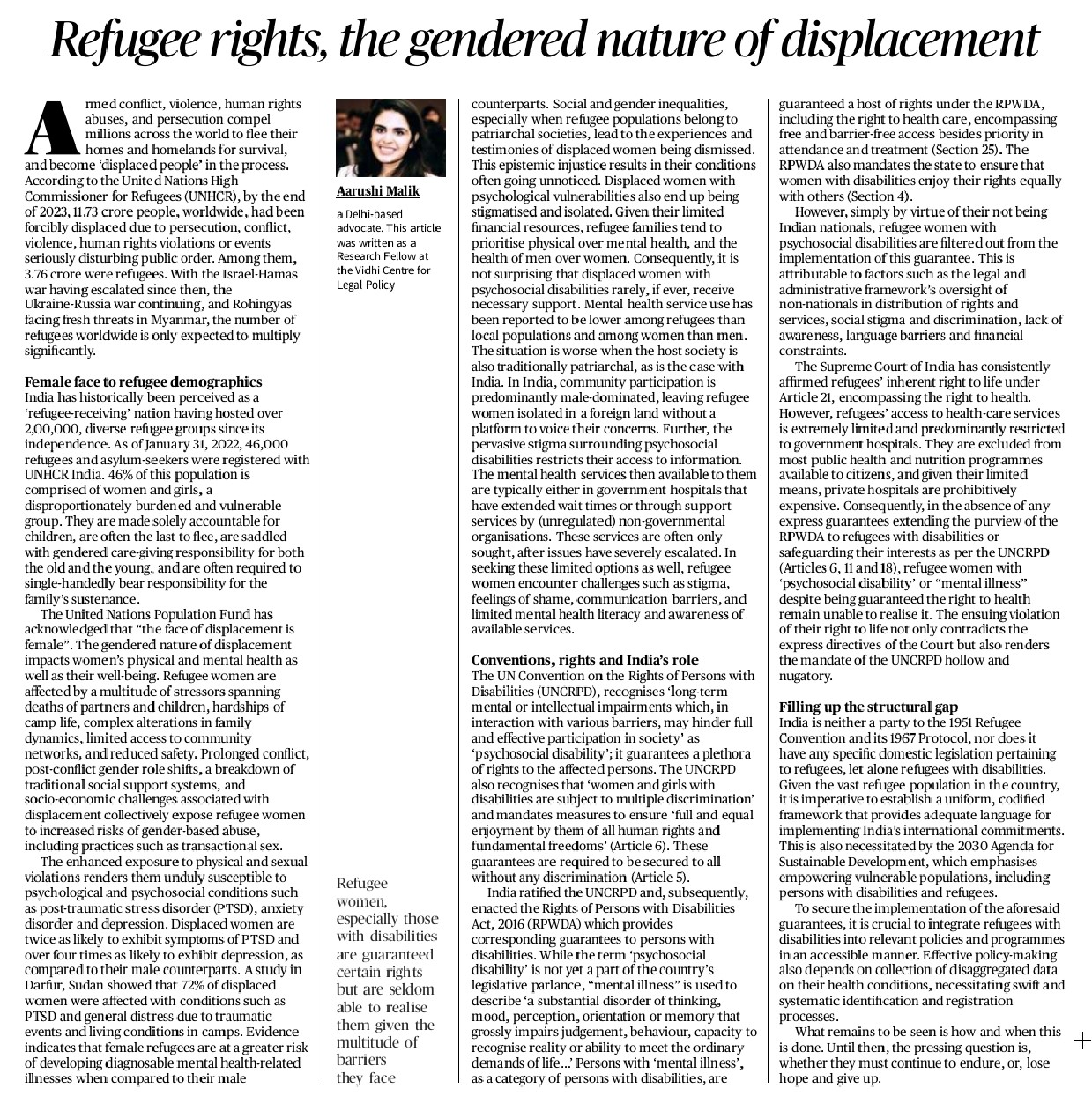On Population Census
Introduction
- The Indian Census, a decadal exercise crucial for understanding population dynamics, has been delayed by over three years.
- This delay has far-reaching implications, as the Census provides a comprehensive dataset essential for policymaking, planning, and program implementation.
- The article highlights the critical role of the Census in revealing demographic changes, evaluating government programs, and informing sustainable development goals (SDGs).
- It also critiques the government’s focus on a caste Census, arguing that it is politically motivated and undermines the true purpose of the Census.
Importance of the Census
Comprehensive data: The Census offers a detailed picture of population distribution, age, gender, education, occupation, and other vital socio-economic indicators.
Policymaking: Accurate and up-to-date Census data is essential for effective policy formulation and implementation.
Program evaluation: It helps assess the reach and impact of government programs by providing a reliable denominator for calculations.
Demographic trends: The Census captures demographic changes, such as population growth, age structure, and migration patterns, which are crucial for long-term planning.
SDG indicators: Many SDG indicators rely on Census data for accurate measurement of progress.
Consequences of Delay
Outdated data: Relying on old Census data for large-scale surveys like the National Family Health Survey and Periodic Labour Force Survey compromises their reliability.
Misleading evaluations: Without accurate population data, the effectiveness of government programs cannot be accurately assessed.
Policy failures: Decision-making based on outdated information can lead to ineffective policies and resource misallocation.
Missed opportunities: Delay in understanding demographic changes can hinder efforts to harness demographic dividends and address emerging challenges.
Caste Census: A Misplaced Priority
Political motivation: The push for a caste Census is primarily driven by political considerations rather than developmental needs.
Limited utility: Caste data alone cannot address complex social issues like deprivation and inequality.
Neglect of core issues: The focus on caste Census diverts attention from more critical aspects of population dynamics.
Ignores mobility: There is a lack of systematic assessment of social mobility across caste lines despite affirmative action policies.
Conclusion
- The delay in the Indian Census is a grave concern with far-reaching consequences.
- It undermines evidence-based policymaking, hinders program evaluation, and obscures the true picture of India’s demographic landscape.
- The government’s emphasis on a caste Census is a misplaced priority that distracts from the urgent need for a comprehensive population count.
- There is an urgent need to prioritize the Census as an essential tool for national development and planning.
Suggested Question for Mains Answer Writing
Critically examine the significance of the Census in India. In light of the delay in the Census, discuss its potential impact on policymaking and development planning.
|
Refugee Rights and displacement
Introduction
- The article highlights the plight of refugee women, particularly those with psychosocial disabilities, who face a double burden of displacement and gender-based discrimination.
- It underscores the gendered nature of displacement, with women often bearing the brunt of conflict’s aftermath.
- Despite international conventions and domestic laws, these women remain largely invisible and underserved.
The Gendered Impact of Displacement
Disproportionate burden: Women refugees carry the primary responsibility for family care, often at the expense of their own well-being.
Increased vulnerability: Displacement exposes women to heightened risks of violence, exploitation, and trafficking.
Mental health crisis: The cumulative stress of displacement, loss, and insecurity leads to high rates of PTSD, depression, and anxiety among refugee women.
Stigma and discrimination: Psychosocial disabilities among refugee women are often stigmatized, limiting access to essential healthcare and support.
Legal Framework and Implementation Gap
International obligations: India, as a signatory to the UNCRPD, is obligated to protect the rights of persons with disabilities, including refugees.
Domestic laws: The RPWDA provides certain safeguards for persons with mental illness, but its applicability to refugee women is limited.
Implementation challenges: Despite legal frameworks, refugee women with psychosocial disabilities face numerous barriers to accessing healthcare, including language barriers, financial constraints, and lack of awareness.
Recommendations
Comprehensive refugee policy: India needs a comprehensive refugee policy that addresses the specific needs of women and those with disabilities.
Data collection: Disaggregated data on refugee women, especially those with psychosocial disabilities, is crucial for effective policymaking.
Capacity building: Healthcare providers and social workers need training to address the specific needs of refugee women.
Community engagement: Involving refugee communities in the design and implementation of support services is essential.
Stigma reduction: Efforts to reduce stigma surrounding mental health and disabilities are crucial.
Conclusion
The article underscores the urgent need to prioritize the rights and well-being of refugee women, especially those with psychosocial disabilities.
By addressing the gendered dimensions of displacement and strengthening support systems, India can make a significant difference in the lives of these vulnerable individuals.
Potential UPSC Mains Question
Critically examine the challenges faced by refugee women, particularly those with psychosocial disabilities. Discuss the role of the state and civil society in addressing their needs and ensuring their rights.
|



